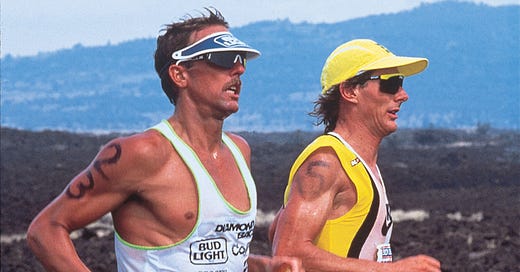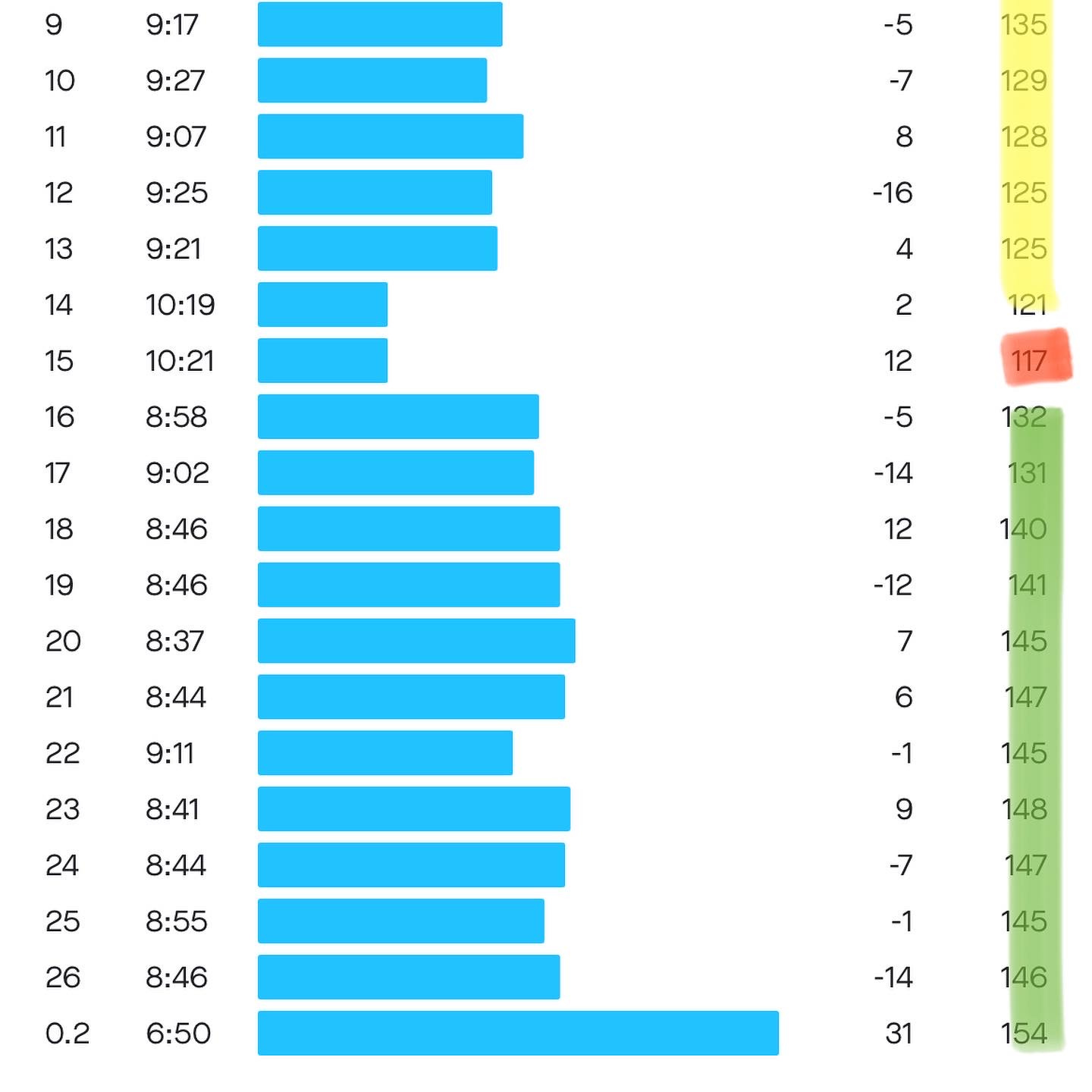3 Lessons From "Iron War: Dave Scott, Mark Allen & The Greatest Race Ever Run"
Learning from the history of triathlon
Over the past 3 weeks, I’ve binged over 20 hours of Founders podcast.
Each episode of Founders reviews a biography/autobiography of a successful founder or entrepreneur.
There’s one clear trend: all great founders know the history of their industry inside and out.
I felt inspired to increase my knowledge of the history of triathlon, so I picked up “Iron War: Dave Scott, Mark Allen & The Greatest Race Ever Run” and flew through it in 3 days.
It’s the story of the 1989 Ironman World Championship.
Here are my 3 favorite takeaways:
#1 Difference In Training Styles
Dave Scott and Mark Allen are the 2 greatest champions of the first generation of triathlon.
The first Ironman World Championship was in 1978.
Starting in 1980, Dave Scott won 6 Ironman World Championships in an 8 year span.
Then he passed the torch to Mark Allen, who won 6 of the next 7.
They were equally great. And yet their training and racing styles were so different.
Dave Scott seemed to train with the mindset that he could just outwork everyone.
He pioneered the sport and established dominance (through work ethic) when there were no training plans to follow.
Mark Allen (4 years younger) synced up with Dr. Phil Maffetone and trained mostly aerobically, with his Heart Rate capped at 155 bpm. Then he would add in speed work closer to races.
In this video he says it worked so well that he was running 5:30/mile aerobically.
Meanwhile, his competition was running the same speed, but at 10-15 bpm higher and taxing their body significantly more (causing them to fade).
Takeaway: Steal from both. Do more work and apply more measured science. Lean into your unique talents too.
#2 You Can Learn To Suffer Better
It’s mile 20 of the marathon and Dave Scott and Mark Allen are stride for stride running 5:30 min/miles.
The author, Matt Fitzgerald, points out the fact that if either of them stopped, they would lock up and unable to even take one step.
So how are they doing it running so fast under such extreme fatigue?
Fitzgerald references a study on entropy of running gait that shows how (in well-trained runners) variability in each stride decreases under fatigue.
This leads to more efficient running economy. You just have to silence a mind that is begging you to quit.
The study compares a running stride to a sphere with gas molecules bouncing around.
If the sphere shrinks, the constraints become tighter and and the system’s behavior becomes more predictable.
The same thing happens with running stride.
This made me think of my Ironman Florida run.
That run was the first time I felt the exhausting fatigue of Ironman, but did not give in to slowing down.
I felt myself fall into a rhythm that was slightly different than my normal running stride, but somehow more maintainable.
Then as soon as I crossed the finish line, I could barely move.
The performance stuff is sweet. I love measurable progress.
But the stats are nothing compared to the feeling that comes with charging through suffering toward a stronger and braver version of myself.
It makes me feel capable of anything. It’s why I love triathlon.
#3 Triathlon Adds Excitement To Life
This book taught me that what triathlon has done for me, it’s been doing for people since it started.
Some quotes in the book:
“People are really tired of living sort of a dull, boring, and sedentary lifestyle”
“They really like the physical aspect of doing something grueling like triathlon”
“I had money; I had stability; but I had nothing to make me feel alive, to make my body and mind work in different ways.”
“It’s about saying to yourself that you don’t want to feel dead on Earth”
Takeaway: a core mission of the sport is chasing adventure and excitement in life.
Summary:
Dave Scott and Mark Allen are the 2 greatest champions of the first generation of triathlon.
In your own training, work hard, stay learning and lean into your unique talents
Suffering is a skill that can be improved. In well-trained runners, form becomes more efficient under fatigue. Learn to quiet the mind.
Since the first triathlon in 1974, the sport has served as a way to add excitement and adventure to life. It’s mission remains true today.





